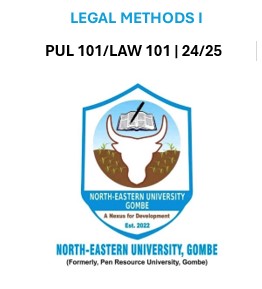
Law in a social context- nature and functions of law in society: law, order and justice; law and freedom; law and the state; law and legitimacy; law and sovereignty. Aspects of the law – types of law – eternal law, divine law, natural law and human or positive law; classification of law: common law and civil law; common law and equity; public and private law; civil and criminal law, substantive and procedural law; written and unwritten law; customary law and Islamic law and global legal traditions (common, civil, Roman-Dutch, Chinese, Islamic and customary laws. Methods of social control through law – penal method; grievance – remedial method; private arranging method; constitutive method, administrative, regulatory method; fiscal method; conferral or social benefits method. Legal reasoning and approach to problems – the language of the law; principles, standards and issues in law; formality and precision in the use of language and distinctiveness of legal terminology; legal rhetoric and legal logic; legal reasoning and practical reasoning; legalism. Legal reasoning in judicial processes: sifting of facts and law in courts; ratio decidendi; precedents. Legal reasoning in legislation – legislative proposals; legislative drafting; ambiguity, vagueness, open texture, semantics in law; legislative process: construction of statutes; types of legislation; codification of laws.
- Teacher: Benjamin Terhile Torlafia
